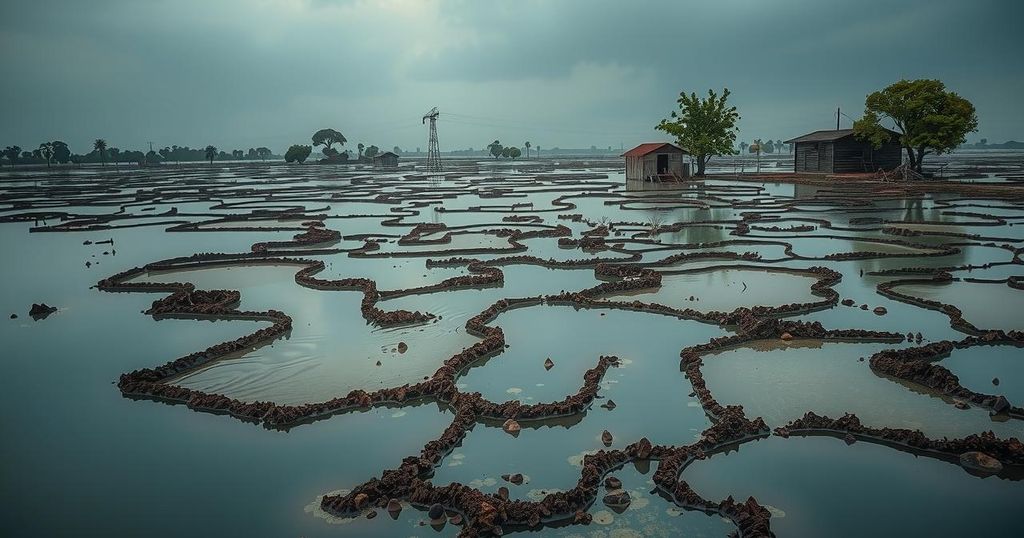Residents of Unity State, South Sudan, are grappling with the severe impacts of floods that are worsening existing oil pollution, leading to contaminated drinking water and significant health issues. Climate change is exacerbating flooding conditions, resulting in widespread public health crises. Former oil engineer David Bojo Leju highlights the mismanagement of oil pollution as a critical challenge, while reports of congenital abnormalities among infants raise alarms within the community. Despite an ongoing environmental audit, the South Sudanese government faces mounting pressure to effectively address these interlinked crises.
In Unity State, South Sudan, residents are facing a dire situation as climate-driven floods exacerbate existing oil pollution, jeopardizing both their health and livelihood. Herders describe the contaminated water they must drink, with serious health implications being reported. Former oil engineer David Bojo Leju emphasizes the escalating disaster resulting from flooding and mismanaged oil contamination. As climate change intensifies flooding conditions, about 40% of Unity State remains submerged, affecting access to clean water and prompting serious public health concerns. The water contamination stems from improper management by oil companies and the inability to effectively treat ‘produced water’, which is often polluted and reinjected into the environment. Reports indicate a concerning increase in congenital abnormalities among newborns linked to environmental pollution, with doctors in the area expressing grave concerns about the correlation between oil-related toxins and adverse health effects. Despite efforts to document and address these issues, many locals remain afraid of stigmatization and lack access to necessary medical facilities. The South Sudanese government has undertaken an environmental audit regarding the oil industry, but the lack of transparency and accountability continues to stifle effective resolutions. As the situation progresses, the local community yearns for a return to their traditional lifestyles, despite overwhelming challenges posed by persistent floods and pollution. Unity State, although historically prone to seasonal flooding, has been devastated by extreme weather events initiated by climate change, altering the region’s ecology and living conditions. Additionally, as the government grapples with both health and environmental crises, the people of South Sudan are left searching for safety and sustenance amidst these daunting realities.
The situation in South Sudan is a complex interplay of climate change and environmental management, particularly surrounding oil extraction industries. For years, the region has faced extreme environmental challenges, especially in Unity State, leading to significant agricultural disruptions and water pollution. Flooding, exacerbated by climate change, has led to unsafe drinking water supplies and heightened risks of health-related issues for local populations, creating a public health crisis. Furthermore, the historical context of oil production practices in South Sudan highlights systemic neglect and mismanagement, contributing to the current state of environmental degradation and public health concerns.
In conclusion, the intertwining issues of climate change, flooding, and oil pollution create a critical humanitarian and environmental crisis in South Sudan’s Unity State. The dire need for clean water is exacerbated by inadequate oil industry practices, leading to severe health risks among the population. As local residents strive to navigate these challenges, the state’s governance must prioritize environmental accountability and public health initiatives to safeguard the welfare of its people while addressing the substantial effects of climate change.
Original Source: www.bbc.com






